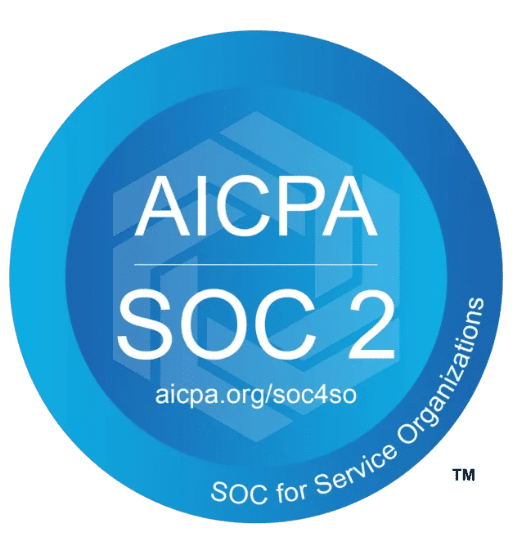
Data security isn’t just a feature—it’s the foundation of legal practice. That’s why AI.Law has achieved SOC 2 Type II certification with an unqualified opinion across Security, Availability, Processing Integrity, and Confidentiality. This independent validation proves our safeguards don’t just look strong on paper—they deliver consistent protection in real-world legal environments. For law firms and in-house teams navigating the complex landscape of secure legal AI adoption, it means unshakeable confidence that sensitive case data remains private, systems stay reliable, and you can focus fully on clients without compromising trust. As AI lawyer tools become essential to competitive legal practice, SOC 2 certification ensures AI.Law delivers both innovation and uncompromising security standards that the legal profession demands.
The Critical Importance of Security Standards in Legal AI
In today’s legal landscape, safeguarding sensitive information has evolved from best practice to business imperative. Legal teams handle vast amounts of confidential data—from privileged client communications to strategic case files and evidence repositories. Any security compromise can trigger catastrophic consequences: breaches of attorney-client privilege, regulatory violations, malpractice exposure, and irreparable damage to professional reputation.
The rapid digitalization of legal processes has amplified these security challenges exponentially. With AI adoption in legal practice nearly tripling from 11% in 2023 to 30% in 2024, more sensitive data flows through digital systems than ever before. This surge makes legal information increasingly susceptible to sophisticated cyber threats and data exposure risks that traditional security measures simply cannot address.
Regulatory scrutiny has intensified accordingly, with frameworks like GDPR, CCPA, and emerging AI-specific legislation creating a complex web of compliance requirements. Legal teams using ChatGPT legal applications or other unsecured AI tools face particular vulnerability, as consumer-grade platforms may retain chat logs, use inputs for model training, or lack the enterprise-grade protections that legal ethics demand. Secure AI platforms with SOC 2 Type II certification demonstrate proactive commitment to meeting these evolving standards while providing measurable assurance to clients and stakeholders.
Understanding SOC 2 Type II Certification: The Gold Standard for Legal Tech
SOC 2 Type II certification represents the pinnacle of data security validation in the technology sector, requiring independent third-party auditors to evaluate an organization’s security controls over an extended operational period rather than a single point-in-time assessment. For secure legal AI platforms serving legal professionals, this extended evaluation period—typically 3-12 months—provides crucial evidence that security measures perform consistently under real-world pressures.
The certification process demands rigorous evaluation by certified public accountants specializing in SOC 2 audits. Auditors scrutinize every aspect of an organization’s security ecosystem: policies, procedures, technologies, and operational practices. They assess compliance against the American Institute of Certified Public Accountants’ Trust Services Criteria, which encompass five critical domains particularly relevant to AI law applications.
Achieving SOC 2 Type II certification with an unqualified opinion—as AI.Law has accomplished—signifies that security controls not only meet rigorous standards but also operate effectively over time. This level of validation provides the highest assurance available to legal teams, demonstrating that their chosen AI lawyer platform maintains enterprise-grade protection standards that align with professional responsibility requirements and client expectations.
How AI.Law Achieved SOC 2 Type II Certification
AI.Law’s journey to SOC 2 Type II certification began with a fundamental recognition: secure legal AI requires security architecture that exceeds generic technology standards. Unlike consumer AI platforms that prioritize broad accessibility, AI.Law was engineered specifically for the legal profession’s unique security and compliance requirements.
Our certification process commenced with a comprehensive risk assessment and vulnerability analysis, conducted in partnership with leading cybersecurity experts. This evaluation identified every potential threat vector and data exposure risk within our systems. Based on these findings, AI.Law implemented advanced security controls, including encryption protocols, zero-trust access management systems, and continuous monitoring infrastructure.
Documentation and policy development formed the next critical phase. AI.Law created detailed, secure AI procedures that serve as operational blueprints for maintaining consistent protection standards. Regular training programs ensure every team member understands their role in safeguarding client data, while incident response protocols provide rapid remediation capabilities should any security event occur.
The culminating SOC 2 Type II audit, conducted by a prestigious CPA firm over an extended observation period, validated the effectiveness of these comprehensive security measures. AI.Law’s achievement of an unqualified opinion across all five Trust Services Criteria demonstrates our unwavering commitment to protecting legal data with the highest industry standards available.
The Five Pillars of Legal AI Security: SOC 2's Trust Services Criteria
The SOC 2 Type II certification evaluates five fundamental Trust Services Criteria that create a comprehensive security framework specifically relevant to legal AI applications. Each criterion addresses critical aspects of data protection that legal professionals must consider when selecting AI lawyer platforms for sensitive work.
- Security forms the foundation, encompassing comprehensive measures to protect information systems from unauthorized access, breaches, and cyber threats. This includes physical security controls, advanced encryption standards, robust firewalls, and sophisticated intrusion detection systems. For legal teams, security controls prevent unauthorized access to privileged communications and confidential case materials.
- Availability ensures systems remain accessible and operational when legal professionals need them most. This involves implementing redundant infrastructure, disaster recovery protocols, and continuous monitoring to prevent downtime. Legal practice cannot afford system failures during critical case deadlines or court appearances, making availability essential for professional reliability in AI law applications.
- Processing Integrity addresses the accuracy and completeness of data processing—particularly crucial for AI lawyer applications that generate legal documents or provide case analysis. Controls ensure that information processing occurs correctly without errors, data corruption, or unauthorized modifications. This criterion directly impacts the reliability of AI-generated legal work product.
- Confidentiality protects sensitive information from unauthorized disclosure through robust access controls, secure communication protocols, and data segregation measures. For secure legal AI platforms, confidentiality controls ensure that one client’s information cannot be accessed by or influence outputs for other clients—a critical protection that generic ChatGPT legal applications cannot provide.
- Privacy ensures compliance with data protection regulations and maintains appropriate controls over personal information collection, storage, and processing. This criterion has become increasingly important as privacy laws proliferate globally, and AI-specific regulations emerge to govern how artificial intelligence systems handle personal data.
AI Law: Transforming Legal Practice Through Certified Security
The SOC 2 Type II certification delivers tangible benefits that extend far beyond compliance checkboxes, fundamentally transforming how legal teams can leverage legal AI technology. The certification provides measurable competitive advantages in client acquisition, risk mitigation, and operational efficiency.
Client trust reaches new levels when legal teams can demonstrate independent validation of their secure AI practices. SOC 2 certification offers documented proof that AI.Law maintains enterprise-grade protection standards, providing the assurance that sophisticated clients’ demands. This transparency builds confidence and can influence procurement decisions, particularly for large corporate clients and government entities that require SOC 2 compliance from their vendors.
The certification also enhances professional liability protection by demonstrating due diligence in AI law technology vendor selection. Legal professionals who choose SOC 2-certified platforms can evidence their commitment to maintaining appropriate security standards, potentially reducing malpractice exposure and regulatory risk.
Operational benefits include streamlined compliance processes, as SOC 2 certification provides pre-validated security controls that align with various regulatory requirements. This reduces the administrative burden on legal teams while ensuring they meet evolving privacy and data protection obligations across multiple jurisdictions.
Perhaps most importantly, SOC 2 certification enables confident AI adoption. Legal teams can leverage powerful AI lawyer capabilities without the security concerns that plague generic ChatGPT legal platforms or Legal Chatbots, and it allows legal professionals to focus on maximizing productivity gains rather than managing compliance risks.
The Future of Legal Security: Staying Ahead of Emerging Challenges
The legal industry stands at a critical inflection point where traditional security approaches cannot address the sophisticated threats and regulatory complexities that secure legal AI adoption introduces. Several converging trends will reshape legal security requirements, making SOC 2 Type II certification increasingly essential for professional AI law platforms.
AI-powered cyber threats are escalating rapidly, with sophisticated attackers leveraging machine learning to bypass traditional security measures. Legal organizations, which handle exceptionally valuable and sensitive information, present particularly attractive targets. SOC 2-certified secure AI platforms provide the multi-layered defense systems necessary to counter these evolving threats through continuous monitoring, threat intelligence integration, and adaptive security controls.
Regulatory expansion continues to accelerate, with new AI-specific legislation emerging across multiple jurisdictions. The EU AI Act, state-level privacy laws, and federal AI governance frameworks create a complex compliance landscape that generic ChatGPT legal tools cannot navigate. SOC 2 certification provides a foundational framework that adapts to new regulatory requirements while maintaining operational continuity.
Client expectations are evolving toward security-first vendor relationships. As awareness of AI lawyer security risks grows, legal clients increasingly require documented evidence of data protection capabilities. SOC 2 Type II certification will become a baseline requirement for secure legal AI vendors, creating clear competitive separation between professional-grade platforms and consumer alternatives.
The convergence of cloud computing, artificial intelligence, and legal practice demands sophisticated security architectures that can protect data across complex distributed systems. SOC 2 certification ensures that legal AI platforms maintain appropriate controls as technology complexity increases, providing scalable security that grows with evolving legal practice needs.
Conclusion: Building Trust Through Verified Excellence
AI.Law’s SOC 2 Type II certification achievement represents more than a security milestone—it establishes a new standard for what legal professionals should expect from their secure AI technology partners. This independent validation demonstrates that cutting-edge legal AI capabilities and uncompromising security standards are not competing priorities but complementary requirements for modern legal practice.
As the legal profession continues its digital transformation, the distinction between generic ChatGPT legal tools and purpose-built secure legal AI platforms will become increasingly pronounced. SOC 2 Type II certification provides the trust foundation that enables legal teams to embrace AI lawyer innovation confidently, knowing their most sensitive information receives enterprise-grade protection that has been independently verified and continuously monitored.
The future belongs to legal teams that can harness secure AI’s transformative power while maintaining the security standards their clients demand and the professional responsibility rules that they require. AI.Law’s SOC 2 certification ensures that the future is both secure and accessible today, providing the verified excellence that modern AI law practice demands.

